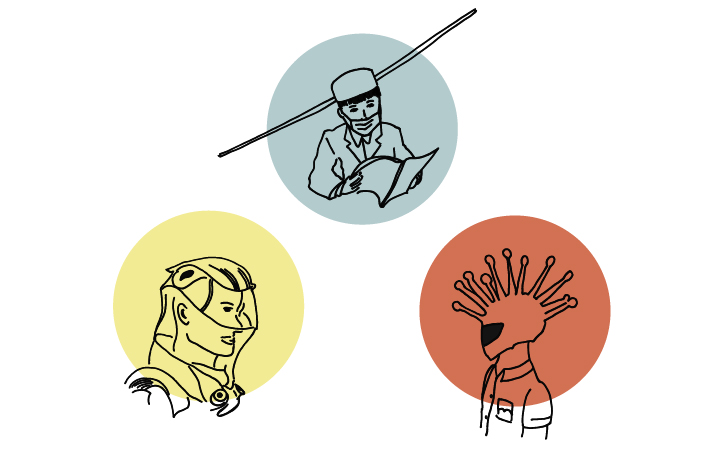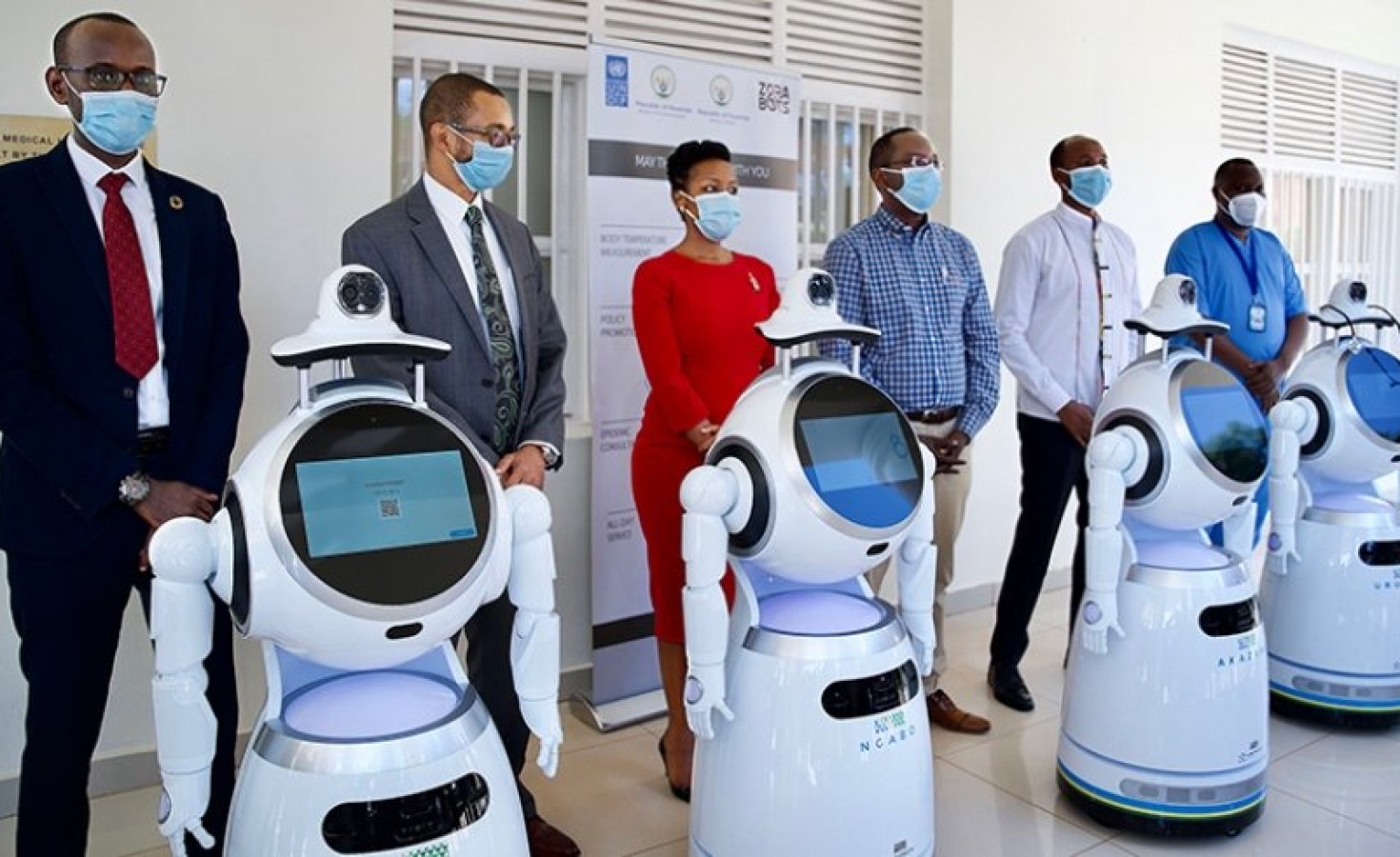
Care Robots & Technologically Assisted Care
An insufficient number of human caretakers meant that they had to care for too many people simultaneously and as a result infected their patients, instead of helping prevent infections.
In Rwanda, an official initiative by the Ministry of Health, with support of the United Nations Development Programme, tested
→ five care robots
 produced by Belgian company Zora Bots. They were employed in the care of patients alongside medical staff at the Kanyinya COVID-19 Treatment Centre, taking on temperature screening, food and medication delivery, as well as data collection and communication tasks. In Senegal, the ‘Dr. Car’ robot, able to communicate in 4 languages was designed by local engineering students Pape Mamadou Gueye and Mouhamadou Lamine Kebe from the Polytechnic Institut of Dakar. It was employed at Dakar Center for Emergency Health Operations (COUS), from March 2020 onwards to transport food and medicine to Covid patients and a more complex follow-up model was subsequently developed.
produced by Belgian company Zora Bots. They were employed in the care of patients alongside medical staff at the Kanyinya COVID-19 Treatment Centre, taking on temperature screening, food and medication delivery, as well as data collection and communication tasks. In Senegal, the ‘Dr. Car’ robot, able to communicate in 4 languages was designed by local engineering students Pape Mamadou Gueye and Mouhamadou Lamine Kebe from the Polytechnic Institut of Dakar. It was employed at Dakar Center for Emergency Health Operations (COUS), from March 2020 onwards to transport food and medicine to Covid patients and a more complex follow-up model was subsequently developed.
Isolation, self-isolation and quarantine are measures designed to break chains of infection. However, contact with close relatives, particularly powerful in times of crisis, was denied to those most at risk of infection. At a great disadvantage, elderly people in care homes were cut off from visitors. Although telephones, tablets and smartphones enabled communication with relatives, if shared, they were also possible transmission media for the highly infectious coronavirus.
In spring 2020, the european company RobShare launched an initiative that enables infection-risk-free communication by lending robots which can be used as means of communication by means of voice control. Residents of elderly homes, who often belong to the risk group of Covid-19, were able to contact their families and friends via video calls. Talking to relatives and staying virtually in touch with friends and family became easy again, preventing people from complete isolation. The goal of the full-service robot rental provider was to introduce robots as a convenient tool for healthcare beyond the scope of traditional medical care and putting a greater focus on the mental health of patients and residents.
Using technology instead to facilitate real human contact, a campaign called #Adoptagrandparent is another project that provided a technological answer to address loneliness. In October 2019, the campaign was originally invented by the UK based care home company CHD Living to enable partnerships between residents of elderly homes and volunteers who may not have grandparents and are interested in sharing moments of their everyday life. As the Covid-19 outbreak hit the UK, #Adoptagrandparent became a global campaign - digital and easy to apply for people all over the world. Pairing residents virtually with volunteers seems like a start of a bigger movement to mitigate the consequences of loneliness and isolation while bridging generations and backgrounds.
Technologically assisted care envisions radical change and improvement in caretaking but at times loses sight of the targeted recipients of these proposals and their true need for human connection. (see also: → Political Romantics | Tony Fry )
Keywords:
Care, Technology, Communication, Isolation
Further reading:
→ Kuteesa, Hudson. “Rwanda: Govt Deploys Robots in COVID-19 Fight”, All Africa, 20 May 2020
→ “Covid-19: Robots help care home residents stay in touch” BBC, 21 April 2020